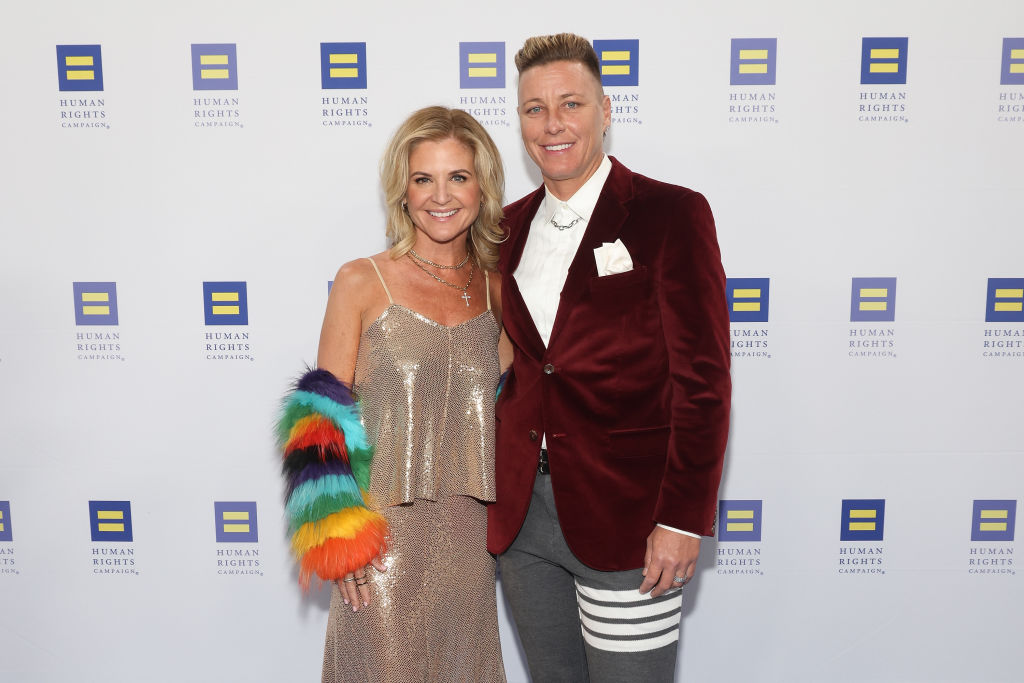Glennon Doyle – wife, mother, lesbian, blogger, former Instagram phenomenon, political influencer – says “we can do hard things.” This aphorism, taken from a poster in a classroom back when she was a third-grade teacher in Virginia, might just be one of the most successful dicta to emerge in recent American history – more successful, even, than Barack Obama’s “Yes we can!”
When Joe Biden won the presidency in November 2020, his campaign manager swiftly tweeted “We can do hard things… and you just did!” Months later, in January 2021, Democrat Chuck Schumer, addressing Congress after the siege of the Capitol, declared: “In America, we do hard things.” Doyle, holding forth from her Instagram account in the wake of Schumer’s adoption of her motto, breathily announced, “I love us. We can do hard things,” before asking her disciples to “go to bed early.” Doyle, however, might well have been up late working the phones.
But I don’t want to be unkind. Against my better judgment, I rather like Doyle. I find myself strangely moved by her honesty gospel; I follow her on Instagram. That she has done hard things herself is indisputable. Born in Virginia to Catholic parents, Doyle suffered – and recovered – from bulimia as a teenager and later, in her twenties, alcoholism. A lonely “soccer mom” hobbled by domesticity in an unfaithful marriage, she began a blog called “Momastery” in which she developed her strange confection of AA-speak, evangelical Christianity and maternal common sense.
The reaction (overwhelmingly from white, Christian women) was extraordinary. Hugely successful memoirs followed: Carry on, Warrior, Untamed and Love Warrior (chosen for Oprah’s book club in October 2016). Each has made the New York Times bestseller list instantly; an impressive achievement by anyone’s standards.
Part of the problem is the book’s typographical layout, where text is often arranged around giant hearts
We Can Do Hard Things, her latest offering, marks a change in direction. Co-authored with her soccer-playing, sober wife, Abby Wambach, and her sister and manager, Amanda Doyle, the book, based on the hugely popular podcast of the same name, allows a chorus of voices into the Glennosphere. The result is rather like trying to watch television while the radio is on and someone is talking to you from another room. A veritable doorstopper at more than 500 pages, the book is described by its authors as a response to collective trauma: Glennon’s anorexia diagnosis, the death of Wambach’s brother, Peter, and Amanda’s struggle with breast cancer. The response turns out to be hard to fathom – but maybe that’s the point.
Structured as a compilation of snippets from starry guests or “wayfinders” on their podcast, among them Elizabeth Gilbert, Alanis Morissette and Jane Fonda, the fragments are thematically organized around the 20 life questions that, according to the trio, people ruminate over most – “How do I know when I’ve lost myself?”, “Sex: am I doing this right?” and “Why can’t I be happy?”
In theory, this shouldn’t be hard to get right. Glennon herself has, after all, considerable form in dishing out gnomic advice: “Don’t carpe diem” or “Death and resurrection… the way of life and love.” In practice, We Can Do Hard Things simply belches out cryptic injunctions that take systemic cultural monoliths such as capitalism or heterosexual gender norms as the enemy: “I am shaped by my culture’s insistence that my value is in my productivity” or “Sexuality is a lifelong exploration for everyone.”
Part of the problem is the book’s confusing typographical layout. Text is often arranged around giant hearts with some things underlined and others circled. Frequently, I lost the thread of whom I should be heeding as the Doyles and Wambach ceded to other progressive Democratic gurus such as Michelle Obama and Kamala Harris in a collective soup of an anthem that goes something like this: defy the patriarchy, fight white supremacy and feel all the feelings, all the time.
Such staccato pronouncements have the ephemeral feel of an Instagram story, designed to be reposted with ease. Unfortunately, like Instagram stories, they also have a habit of disappearing from one’s mind almost instantly. But as Glennon herself points out, sometimes things like this just can’t be helped: “Sometimes it’s not you, it’s not me, it’s the energy between us. It’s just not working.”
What does work about it, then? While Doyle, Doyle and Wambach throw their hands up and admit that they don’t have any answers, they do offer a percentage-based theory of “enough-ness” that is meant to be, well, enough. The book’s dedication to their children is appended with “51 percent,” a figure that reflects the trio’s belief in the maxim that life is 49 percent “brutal” and 51 percent “beautiful.” As Wambach says, if you can experience 51 percent “enough-ness” on any given day, then you’re doing pretty well.
I finished with a lot less than 51 percent of the energy I had at the start. But it’s OK: I have, myself, done a hard thing. And no doubt millions of eager Americans will, too.
This article was originally published in The Spectator’s August 2025 World edition.


























Leave a Reply